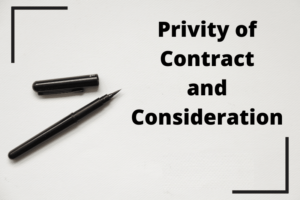
FOCUSING ON GUJARAT JUDICIAL SERVICES EXAM SYLLABUS 2024
The Gujarat High Court administers the esteemed and fiercely difficult Gujarat judicial services Examination. It serves as a starting point for anyone hoping to work as a judge in Gujarat, India. Judges and magistrates, sometimes known as judicial officers, are vital to the administration of justice, protection of the law, and resolution of legal disputes.
Gujarat judicial services Examination Pattern
For the Preliminary Examination:
TheGujarat judicial servicesexam begins with this phase. It is a screening test in the form of an objective examination. The preliminary exam evaluates a candidate’s Gujarati language skills, legal topic knowledge, and current events awareness.
For the Mains Examination:
Candidates who pass the preliminary exam advance to the Mains in the Gujarat judicial service exam. The Mains assessment is more in-depth and personal. It evaluates a candidate’s knowledge of different laws, their familiarity with procedural laws, and their capacity for legal analysis.
For the Interview:
Following their performance in the Mains exam in the Gujarat judicial service exam, candidates are invited to a personal interview, or viva voce. The candidate’s attitude, legal acumen, and fitness for the judiciary are assessed by the interview panel.
Gujarat judicial service Examination 2024: Syllabus
As per the Gujarat judiciary examination, the syllabus for 2024 is as follows:
For the Preliminary Round:
The Question paper for the preliminary examination consists of Parts A, B, and C.
Part A: Law
- Questions to be expected on the Code of Criminal Procedure of 1973
- Questions to be expected on the Negotiable Instruments Act of 1881
- Questions to be expected on the Indian Evidence Act of 1872
- Questions to be expected on the Indian Penal Code of 1860
- Questions to be expected on the Gujarat Prohibition Act of 1949
Part B: Law
- Questions to be expected on the Indian Contract Act of 1872
- Questions to be expected on the Constitution of India
- Questions to be expected on the Code of Civil Procedure of 1908
- Questions to be expected on the Limitation Act of 1963
Part C:General Knowledge
- Questions to be expected on Government schemes
- Questions to be expected on Fiscal and Monetary Policy
- Questions to be expected on Financial Policy
- Questions to be expected on Banking and Finance Related Terms
- Questions to be expected on Abbreviations
- Questions to be expected on Important days and events
- Questions to be expected on Indian Constitution
English Language:
- Questions to be expected on Reading Comprehension
- Questions to be expected on Cloze Test
- Questions to be expected on Fill in the Blanks
- Questions to be expected on Error
- Questions to be expected on Sentence Rearrangement
- Questions to be expected on Para Jumble
- Questions to be expected on Antonyms and Synonyms
- Questions to be expected on Match the Following
- Questions to be expected on Sentence Connector
- Questions to be expected on Odd one out
Test of Reasoning:
- Questions to be expected on Puzzle
- Questions to be expected on Statements and Assumptions
- Questions to be expected on Ranking
- Questions to be expected on Coding-Decoding
- Questions to be expected on Seating Arrangement
- Questions to be expected on Syllogism
- Questions to be expected on Blood Relations
- Questions to be expected on Direction Test
- Questions to be expected on Inequalities
- Questions to be expected on Series
- Questions to be expected on Logical Reasoning
- Questions to be expected on Alphanumeric Series
Numerical & Mental Ability:
- Questions to be expected on Data Interpretation
- Questions to be expected on Time and Work
- Questions to be expected on Number series
- Questions to be expected on Approximation
- Questions to be expected on Profit and Loss
- Questions to be expected on Simple Interest
- Questions to be expected on Quadratic Equations
- Questions to be expected on Partnership
- Questions to be expected on Mixture and Allegations
Basic Computer Applications:
- Questions to be expected on Components of computer
- Questions to be expected on Computer Fundamentals
- Questions to be expected on Computer network
- Questions to be expected on Computer Storage Device
- Questions to be expected on Generations of Computer
- Questions to be expected on Input and Output Device
- Questions to be expected on Microsoft Office
- Questions to be expected on Microsoft Word Paper-II (For those applicants who failed the Gujarati language portion of the Secondary and Higher Secondary exams)
There will be 100 questions in total; 25 will be in Gujarati and 75 in English.
For the Mains Round:
Paper I: Criminal Law
- Questions to be expected on the Code of Criminal Procedure (1973)
- Questions to be expected on the Probation of Offenders Act (1958)
- Questions to be expected on the Indian Penal Code (1860)
- Questions to be expected on the Indian Evidence Act (1872)
- Questions to be expected on the Domestic Violence Act (2015)
- Questions to be expected on the Juvenile Justice Act (2015)
- Questions to be expected on the Immoral Traffic (Prevention) Act (1956)
- Questions to be expected on the Gujarat Prevention of Gambling Act (1887)
- Questions to be expected on the Negotiable Instruments Act (1881)
- Questions to be expected on the Pre-conception and Pre-Natal Diagnostic Techniques Act (1994)
- Questions to be expected on the Registration of Births and Deaths Act (1969)
Paper II: Civil Law
- Questions to be expected on the Limitation Act (1963)
- Questions to be expected on the Indian Partnership Act (1932)
- Questions to be expected on the Code of Civil Procedure (1908)
- Questions to be expected on the Gujarat Court Fees Act (2004)
- Questions to be expected on the Specific Relief Act (1963)
Paper III: Gujarati Language
For the Interview Round:
- A shortlist of candidates who pass the Mains exam of the Gujarat judiciary will move on to the Viva Voce round of testing. There will be a Viva Voce exam with 50 marks.
- Gujarat High Court officials will examine the following in the candidates during this Viva-Voce:
- Examination of Mental vigilance
- Examination of Understanding the law
- Examination of reasonable and unambiguous explanation
- Examination of equilibrium of judgment
- Examination of Competencies, disposition, and morality
- Examination of the ability to assimilate
- Examination of the ability to communicate
- Examination of Moral fiber and profundity of thought
- Examination of Capacity for analysis
It takes a thorough comprehension of the Gujarat judiciary Services exam syllabus, a well-organized study schedule, and ongoing practice to pass the test. Maintain your drive, put in a lot of effort, and have faith in your skills to improve your chances of passing the Gujarat Judiciary exam.



